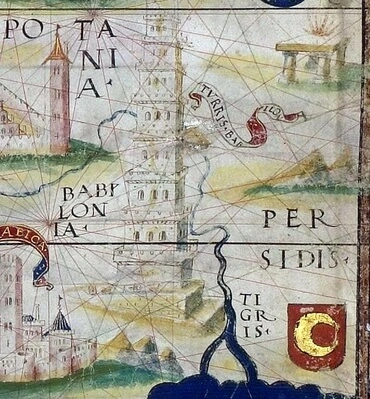1
And it came to pass that, when Jeremiah had made an end of speaking unto all the people all the words of Jehovah their God, wherewith Jehovah their God had sent him to them, even all these words,
2
then spake Azariah the son of Hoshaiah, and Johanan the son of Kareah, and all the proud men, saying unto Jeremiah, Thou speakest falsely: Jehovah our God hath not sent thee to say, Ye shall not go into Egypt to sojourn there;
3
but Baruch the son of Neriah setteth thee on against us, to deliver us into the hand of the Chaldeans, that they may put us to death, and carry us away captive to Babylon.
4
So Johanan the son of Kareah, and all the captains of the forces, and all the people, obeyed not the voice of Jehovah, to dwell in the land of Judah.
5
But Johanan the son of Kareah, and all the captains of the forces, took all the remnant of Judah, that were returned from all the nations whither they had been driven, to sojourn in the land of Judah;
6
the men, and the women, and the children, and the king's daughters, and every person that Nebuzaradan the captain of the guard had left with Gedaliah the son of Ahikam, the son of Shaphan; and Jeremiah the prophet, and Baruch the son of Neriah;
7
and they came into the land of Egypt; for they obeyed not the voice of Jehovah: and they came unto Tahpanhes.
8
Then came the word of Jehovah unto Jeremiah in Tahpanhes, saying,
9
Take great stones in thy hand, and hide them in mortar in the brickwork, which is at the entry of Pharaoh's house in Tahpanhes, in the sight of the men of Judah;
10
and say unto them, Thus saith Jehovah of hosts, the God of Israel: Behold, I will send and take Nebuchadrezzar the king of Babylon, my servant, and will set his throne upon these stones that I have hid; and he shall spread his royal pavilion over them.
11
And he shall come, and shall smite the land of Egypt; such as are for death [shall be given] to death, and such as are for captivity to captivity, and such as are for the sword to the sword.
12
And I will kindle a fire in the houses of the gods of Egypt; and he shall burn them, and carry them away captive: and he shall array himself with the land of Egypt, as a shepherd putteth on his garment; and he shall go forth from thence in peace.
13
He shall also break the pillars of Beth-shemesh, that is in the land of Egypt; and the houses of the gods of Egypt shall he burn with fire.







